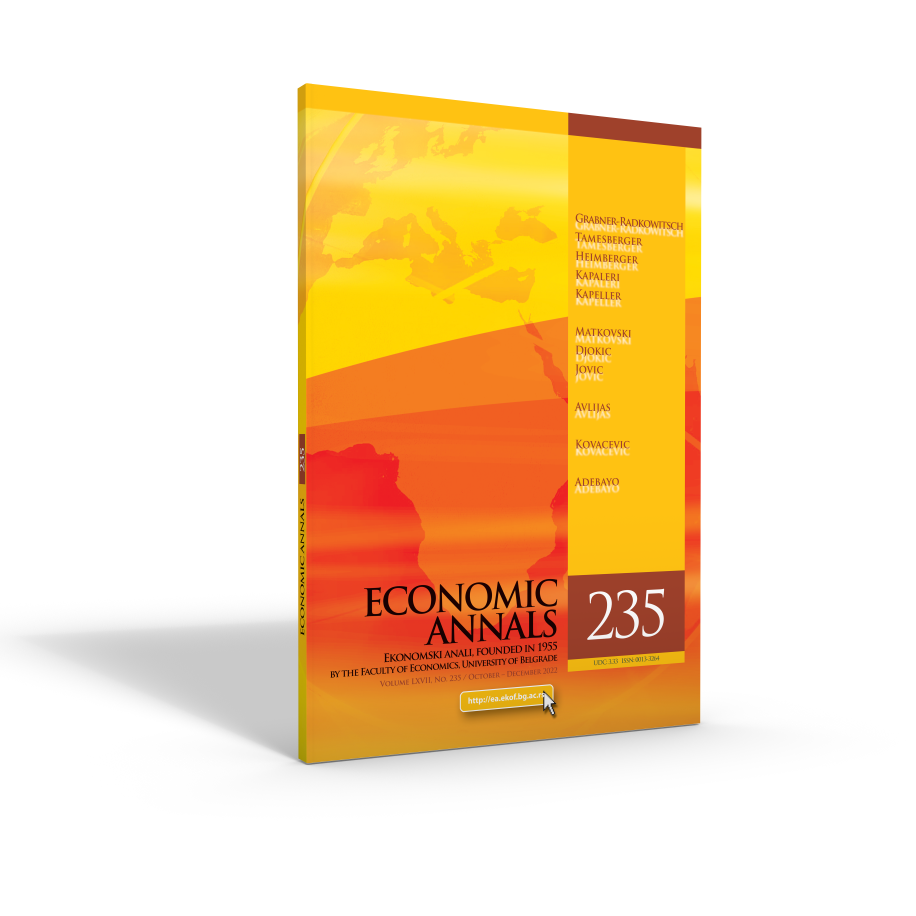HOW CEFTA INFLUENCED THE COMPETITIVENESS OF AGRI-FOOD TRADE IN THE WESTERN BALKANS
##plugins.themes.bootstrap3.article.main##
##plugins.themes.bootstrap3.article.sidebar##
Bojan Matkovski
Danilo Đokić
Luna Vodana Jović
Danilo Đokić
Luna Vodana Jović
Abstract
The regional integration with the CEFTA significantly influenced the liberalisation of the market, which led to an increase in exports of agri-food products in the Western Balkan economies. The main objective of this paper is to examine the impact of the CEFTA on the export of agrifood products of Western Balkan economies on the global and regional markets. In this context, comparative advantages have been analysed, and the gravity model based on panel data has been estimated. According to the results, all the Western Balkan economies have comparative advantages in exporting on the international market. Results of the gravity model estimation showed that free trade agreements with the CEFTA positively affected the intensification of agri-food product exports. Western Balkan economies have similar economic development and competitiveness levels. Thus, reintegrating the market established by CEFTA affected the export of agri-food products.
##plugins.themes.bootstrap3.article.details##
Keywords
CEFTA, agri-food trade, Western Balkans, revealed comparative advantages, gravity model
JEL Classification
Q17, Q18, F15
Issue
Section
Articles
How to Cite
Matkovski, B., Đokić, D., & Vodana Jović, L. (2022). HOW CEFTA INFLUENCED THE COMPETITIVENESS OF AGRI-FOOD TRADE IN THE WESTERN BALKANS. Economic Annals, 67(235), 37-66. https://doi.org/10.2298/EKA2235037M
How to Cite
Matkovski, B., Đokić, D., & Vodana Jović, L. (2022). HOW CEFTA INFLUENCED THE COMPETITIVENESS OF AGRI-FOOD TRADE IN THE WESTERN BALKANS. Economic Annals, 67(235), 37-66. https://doi.org/10.2298/EKA2235037M

